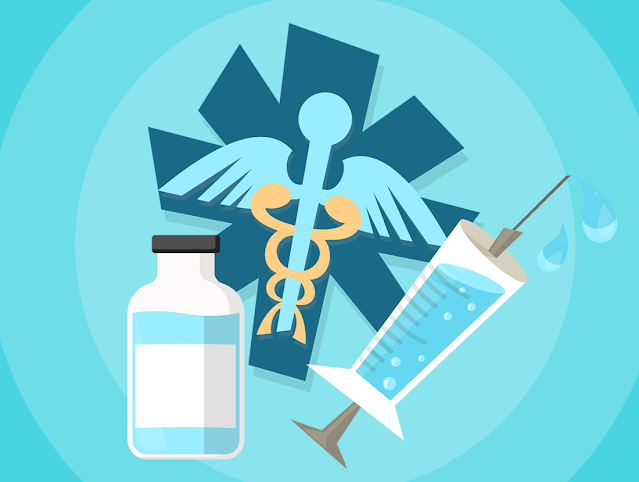Ensuring Vaccine Safety: The Importance of Pharmacovigilance and Monitoring
Building Trust in Vaccines: Effective Communication and Vaccine Safety
-
Introduction to Vaccine Safety
Vaccine safety is a critical component of public health. It involves the development, testing, and ongoing monitoring of vaccines to ensure they are effective and safe. Vaccine safety measures include rigorous clinical trials, post-marketing surveillance, and prompt investigation of any concerns about vaccine safety.
-
The Importance of Vaccine Safety
Vaccines have been instrumental in preventing the spread of infectious diseases and saving countless lives. However, vaccines can also cause side effects, which is why vaccine safety is crucial. Ensuring vaccine safety promotes trust in vaccines and encourages vaccine uptake, which in turn protects individuals and communities from vaccine-preventable diseases.
-
The Role of Pharmacovigilance in Vaccine Safety
Pharmacovigilance is the science of monitoring and evaluating the safety of medicines, including vaccines. It involves collecting, analyzing, and interpreting data on adverse events following vaccination to detect any safety signals and take appropriate action. Pharmacovigilance is critical for ensuring vaccine safety and building public confidence in vaccines.
-
The Process of Vaccine Pharmacovigilance
Vaccine pharmacovigilance involves several steps, including active surveillance for adverse events following vaccination, investigation of any concerns about vaccine safety, and communication of vaccine safety information to the public and healthcare providers. This process helps to identify potential safety concerns and ensure that vaccines are safe and effective for everyone.
-
Vaccine Adverse Event Reporting Systems
Vaccine adverse event reporting systems (VAERS) are a key component of vaccine pharmacovigilance. VAERS is a national vaccine safety surveillance program in the United States that monitors and analyzes reports of adverse events following vaccination. VAERS helps to identify potential safety concerns and take appropriate action to ensure vaccine safety.
-
Vaccine Safety Monitoring in the Post-Marketing Phase
Vaccine safety monitoring does not end when a vaccine is approved for use. Ongoing monitoring in the post-marketing phase is critical to ensure that any rare or unexpected adverse events are detected and investigated promptly. Post-marketing surveillance helps to identify potential safety concerns and ensure that vaccines are safe and effective for everyone.
-
Common Vaccine Side Effects
Most vaccine side effects are mild and go away on their own. Common vaccine side effects include pain and redness at the injection site, fever, and fatigue. These side effects are usually short-lived and do not cause serious harm. Healthcare providers can provide information on common vaccine side effects and how to manage them.
-
Serious Vaccine Adverse Events
While serious vaccine adverse events are rare, they can occur. Serious adverse events may include allergic reactions, seizures, and other serious neurological events. These events are carefully monitored and investigated as part of vaccine pharmacovigilance. Healthcare providers are trained to recognize and manage serious vaccine adverse events.
-
Vaccine Safety in Special Populations
Some populations, such as pregnant women, infants, and the elderly, may be at higher risk of adverse events following vaccination. Vaccine safety monitoring in these populations is particularly important to ensure that vaccines are safe and effective for everyone. Healthcare providers can provide information on vaccine safety in special populations.
-
Vaccine Safety and Confidence
Vaccine safety is essential to building public confidence in vaccines. Effective communication about vaccine safety, including transparency about any concerns or adverse events, is critical to maintaining trust in vaccines and promoting vaccine uptake. Healthcare providers can address any concerns about vaccine safety and provide accurate information to help build confidence in vaccines.
-
Vaccine Safety and Global Health
Vaccine safety is a global public health priority. Ensuring vaccine safety is essential for achieving the World Health Organization's goal of universal access to vaccines and reducing the burden of vaccine-preventable diseases worldwide. Global collaborations and partnerships are critical for promoting vaccine safety and improving global health.
-
Vaccine Safety Research
Vaccine safety research is an ongoing process. New vaccines are constantly being developed, and existing vaccines are continually monitored to ensure their safety and effectiveness. Research on vaccine safety helps to identify potential safety concerns and develop strategies to address them. Funding for vaccine safety research is critical for improving vaccine safety and reducing the risk of adverse events.
-
Vaccine Safety and the Future
The future of vaccine safety involves the ongoing development of new vaccines, monitoring of existing vaccines, and collaboration between public health agencies, healthcare providers, and vaccine manufacturers. Ensuring vaccine safety will continue to be a critical component of global public health efforts. New technologies and innovations are being developed to improve vaccine safety and effectiveness.
-
Conclusion: The Importance of Vaccine Safety and Pharmacovigilance
Vaccine safety and pharmacovigilance play a critical role in protecting public health. Rigorous testing, ongoing monitoring, and prompt investigation of any concerns about vaccine safety are essential to ensure that vaccines are safe and effective for everyone. Healthcare providers and public health agencies are committed to promoting vaccine safety and building public confidence in vaccines. -
Resources for Vaccine Safety and Pharmacovigilance
There are many resources available to support vaccine safetyand pharmacovigilance, including national and international public health agencies, vaccine manufacturers, and vaccine safety advocacy groups. These resources provide information on vaccine safety, adverse event reporting, and vaccine pharmacovigilance. Healthcare providers can provide information on vaccine safety and direct patients to these resources for additional information. It is important for individuals to be informed about vaccine safety and pharmacovigilance to make informed decisions about their health and the health of their communities.

Join the conversation